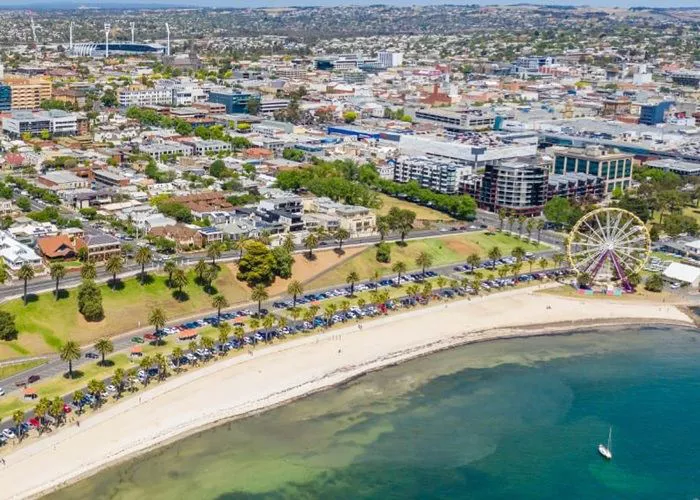December 8 holds significant historical importance in Australia, marked by various events that have shaped the nation’s social, political, and cultural landscape. This article delves into notable occurrences on this date throughout Australian history, providing a detailed account of each event and its implications.
What Happened on December 8 in Australian History?
1. Birth of Bert Hinkler (1892)
On December 8, 1892, Bert Hinkler, a pioneer aviator, was born in Bundaberg, Queensland. Hinkler is celebrated for his contributions to aviation and is considered one of Australia’s most significant aviation figures. His early fascination with flight led him to build model aircraft and eventually pursue a career in aviation.Hinkler gained fame for his solo flights, including the first solo flight from England to Australia in 1928. This remarkable achievement not only showcased his flying skills but also highlighted the potential for air travel as a means of connecting distant lands. His legacy continues to inspire future generations of aviators and enthusiasts.
2. Geelong Declared a City (1910)
On December 8, 1910, Geelong, located in Victoria, was officially declared a city. This event marked a significant milestone in the city’s development and recognition as an urban center. Geelong’s growth can be traced back to its establishment as a settlement in the early 19th century, driven by its strategic location near Corio Bay.The declaration of city status reflected Geelong’s expanding population and economic importance, particularly in industries such as wool production and manufacturing. Today, Geelong is known for its vibrant arts scene, educational institutions, and as a gateway to the Great Ocean Road.
3. Imperial Airways Extends Airmail Service (1934)
In 1934, Imperial Airways extended its airmail service to Australia on December 8. This development was pivotal in enhancing communication between Australia and the rest of the world. The introduction of airmail services significantly reduced delivery times compared to traditional sea routes.The extension of this service not only facilitated faster communication but also contributed to Australia’s integration into global trade networks. It laid the groundwork for future advancements in air travel and logistics that would further connect Australia with international markets.
4. The Queen Street Massacre (1987)
A tragic event occurred on December 8, 1987, known as the Queen Street massacre in Melbourne. Frank Vitkovic opened fire in a crowded office building, resulting in the deaths of eight individuals and injuring several others before taking his own life. This incident shocked the nation and raised concerns about gun control and public safety.In the aftermath of the massacre, there were calls for stricter gun laws in Australia. The event prompted discussions about mental health support and the need for improved safety measures in public spaces. It remains one of the deadliest mass shootings in Australian history.
5. Mabo v Queensland (1988)
On December 8, 1988, the High Court of Australia delivered a landmark decision in the case of Mabo v Queensland. The court ruled that the Queensland Coast Islands Declaratory Act was invalid because it attempted to abolish native title rights retrospectively. This ruling recognized the land rights of Indigenous Australians and overturned the legal doctrine of terra nullius, which claimed that land belonged to no one prior to European settlement.The Mabo decision had profound implications for Indigenous land rights across Australia. It paved the way for subsequent legislation aimed at recognizing and protecting native title claims. The case is seen as a turning point in Australian history regarding reconciliation with Indigenous peoples and their rights.
6. Australia at War with Japan (1941)
December 8, 1941, marked a critical moment in Australian history as it was announced that Australia was at war with Japan following Japan’s attack on Pearl Harbor and subsequent invasions across Southeast Asia. This declaration came amidst growing tensions during World War II and signified Australia’s commitment to supporting Allied efforts against Axis powers.The war against Japan would have devastating consequences for Australia, with approximately 17,000 Australians losing their lives over three years of conflict against Japanese forces. The war also led to significant changes within Australian society, including increased military enlistment and shifts in public sentiment regarding national security.
Conclusion
The events that occurred on December 8 throughout Australian history reflect a diverse array of social, political, and cultural developments that have shaped the nation over time. From significant milestones such as Bert Hinkler’s birth to tragic events like the Queen Street massacre and pivotal legal decisions like Mabo v Queensland, each occurrence has left an indelible mark on Australia’s historical narrative.Understanding these events provides insight into Australia’s journey as a nation—its struggles, achievements, and ongoing efforts toward reconciliation with its Indigenous peoples.
As we reflect on December 8’s historical significance, it becomes clear that each event contributes to our collective understanding of what it means to be Australian today.This examination of December 8 serves not only as an exploration of past events but also as a reminder of how history shapes our present and future. By acknowledging these moments within our national story, we can foster greater awareness and appreciation for Australia’s rich historical tapestry.
Related Topics:

